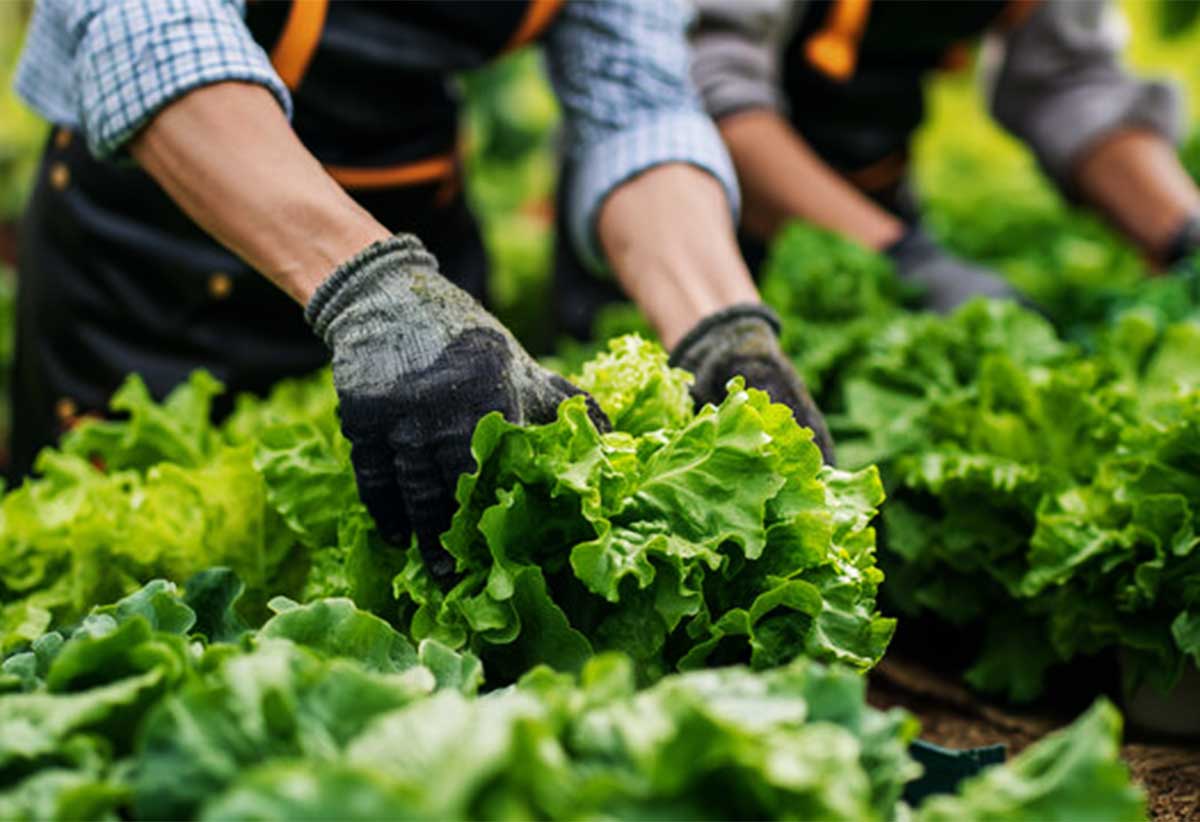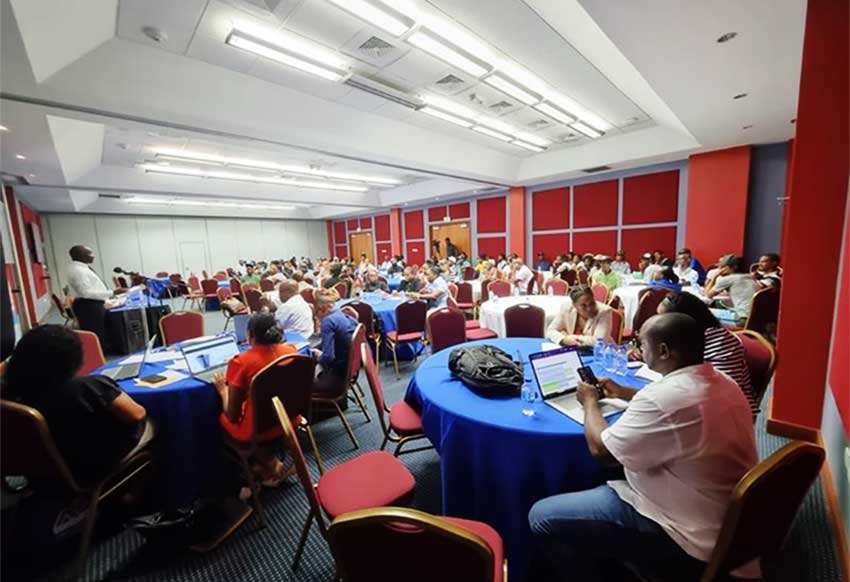
Minister for Agriculture and Food Security Alfred Prospere has confirmed that the Farm Labour programme has been successful, with a current workforce of 257 and plans to add another 100 workers by September 2nd.
The programme aims to support local farmers by reducing their production costs through various initiatives, such as providing water tanks to livestock and crop farmers, distributing greenhouses, and offering financial assistance for farm drainage.
“We started this Farm Labour programme on June 3rd. We started with 90 workers but we targeted 175 farms,” he told reporters prior to a cabinet briefing on Monday.
According to ministry sources, this initiative is being spearheaded by the Unleashing the Blue Economy of the Caribbean (UBEC) Project, in collaboration with the department of agriculture and aims to increase local food production and assist with the overall continued recovery of the agricultural sector post COVID-19.
Prospere anticipates the Farm Labour programme will provide further support to the farmers, as it is “geared to reducing the cost of production for our farmers.”

This project helps farmers offset the costs involved with hiring workers to fertilize, harvest, and spray, since the department now pays these workers under the World Bank programme.
In addition, he said, the department has provided 500 water tanks to livestock farmers and are looking to procure 2,000 new water tanks for crop farmers.
The minister hopes this initiative will recognize the importance of “food security to feed our nation …and to reduce our food import bill by encouraging our farmers to grown what we eat and to eat what we grow.”
Other initiatives within the programme will involve purchasing 46 green houses to give to schools and some farmers. Additionally, the minister said, more than 200 farmers will be provided with green house plastics.
He noted that since the current rainy season affects the planting of crops like tomatoes, cucumbers, lettuce, cantaloupes and watermelons, “we are working to assist those farmers to ensure that we do not have a gap (in producing) those commodities.”
Prospere reports there is also an ongoing farm drainage programme to provide financial assistance to farmers to help them to maintain the upkeep of drains on their farms. A sum of US $500 is allocated per farm to assist farmers to employ workers to undertake this task.
Additionally, the Volet Agricultural Station will soon introduce 54 new breeds of goats, sheep, pigs, and cattle, initiating an artificial insemination programme to further develop the livestock sector.
These measures emphasize the government’s commitment to enhancing food security and decreasing the nation’s food import bill by promoting local farming.
Meanwhile, the Ministry of Agriculture has decided to revoke the Water Related Emergency mechanism, which was set up on May 17 to manage water usage due to drought on the island.
This decision was made after considering recommendations from key stakeholders, which included the Water and Sewerage Company (WASCO) and the Metrological Services after assessing the improved water situation.




![Attendees at the UHC logo and website launch [Photo credit: GOSL]](https://thevoiceslu.com/wp-content/uploads/2026/02/Attendees-at-the-UHC-logo-and-website-launch-380x250.jpg)






![Remnants of an alleged drug boat blown up in a lethal strike by the U.S. military last week surfaced off Canouan on Saturday [Photo credit : St Vincent Times]](https://thevoiceslu.com/wp-content/uploads/2026/02/Remnants-of-an-alleged-drug-boat-blown-up-380x250.jpg)

